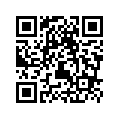Assessment Practices for Action Competence (solving real-world problems).
Develop a kete of effective strategies for assessing vocational action competence.

QR code for Google mobile access
In the course, a number of different tools will be used for sharing ideas and discussing your views about assessment. Because this is an online course, and people may potentially join us from around the world, it is important that we use open technologies for our communications. As a group you may decide to use just one or two tools. Setting up your learning space, for example, using a blog provides you with an opportunity to share your views, get feedback on them and to keep a record of your learning progress. A Google Group for discussions is a good way for more regular interactions and sharing of ideas. WikiEducator pages are suggested for developing your projects on assessment.
Setting up accounts
Most websites are self-explanatory once you click sign up or register for an account, you are asked to fill in a template, sign terms and conditions and save or submit. You will also be asked to fill out an anti spam code of letters and numbers. Verification of an account is done by email, and you must verify the account for it to be activated.
What to do to get started
- Set up your learning space. A blog is a good way to do this. This allows you to share your reflections and learning with others, and link to the other tools you are accessing learning. Blogger is a good starting blog platform.
- Register accounts for the websites used in the course and bookmark them for future reference.
- Create an account on WikiEducator.
- Add a link to your blog in the discussion area for this page (can also go via the tab at the top).
- Join the Assessment Practices discussion group. Sign up if you don't already have a Google account. This will give you access to a number of tools.
- A Gmail account is very useful because it allows you to chat (with text), and use audio and video chat for real time interactions.
- Access the discussion group on your mobile phone.
- Introduce yourself on the Assessment Practices discussion group - something about you, your area of teaching, and your interest in assessment.
- Familiarise yourself with the course materials.
|

